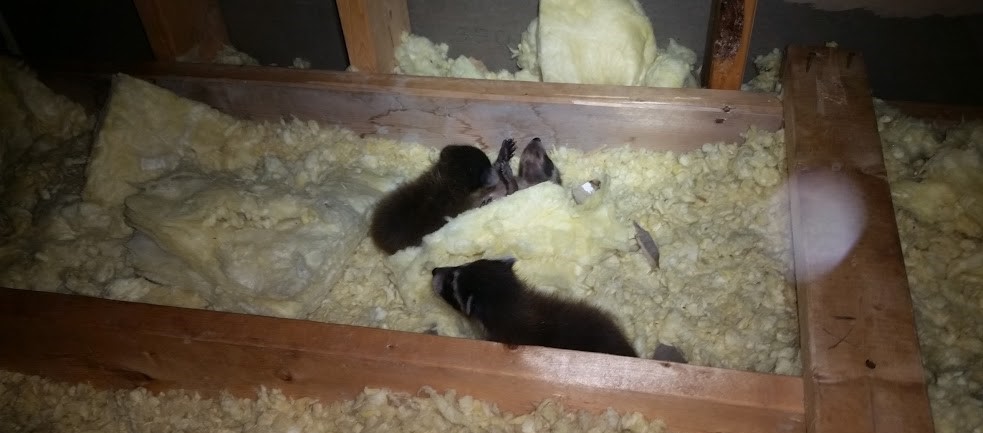Have you been finding evidence of nocturnal visitors rummaging in your garbage or leaving small paw prints in your garden? Raccoons are a common sight in Durham, and while they may seem harmless, they can cause damage to your property if left unchecked. Thankfully, there are simple, humane ways to keep them at bay.
Implementing raccoon prevention tips can help protect your home, garden, and peace of mind. By taking a few proactive steps, you can ensure your property is less appealing to these curious creatures — all without causing them harm. Here’s how you can make your space raccoon-proof while maintaining harmony with local wildlife.
Secure Your Garbage and Compost Bins
A reliable way to deter raccoons is to secure your garbage and compost bins. These clever animals are often attracted to easily accessible food sources, and an unsecured bin is a treasure trove to them. Here’s what you can do to remove this refrigerator-like allure:
- Use bins with tightly fitting lids or locking mechanisms designed to withstand prying paws.
- If possible, store your bins in a garage or shed overnight to limit exposure during their most active hours.
- Clean your bins regularly to eliminate lingering odours that raccoons might find tempting.
Did you know that some municipalities across Canada have guidelines for wildlife-proof bins? Consult your local by-laws for recommendations that work best in Durham.
Manage Outdoor Food Sources
Raccoons are opportunistic eaters, readily drawn to any accessible food. If you overlook certain outdoor habits, you might be unintentionally inviting them over. Here are some ways you can manage outdoor food sources effectively:
- Pet Food: Avoid leaving pet food and water dishes outdoors overnight.
- Bird Feeders: Empty bird feeders before nightfall, or use raccoon-resistant feeders.
- Barbecues and Outdoor Dining Areas: Clean your barbecue thoroughly after each use, as leftover grease or food smells are appealing.
- Gardens and Fruit Trees: Regularly harvest ripe fruits and vegetables, and clean up fallen produce.
By limiting access to food, raccoons are less likely to linger near your home.
Eliminate Potential Shelters
Raccoons are also on the lookout for shelter, especially during colder months when they need a warm place to rest. Unsecured spaces around your home can present the ideal nesting location. Prevent this by addressing the following:
- Roof and Chimney: Regularly inspect your roof, soffits, and chimneys for any openings that could serve as entry points. Seal any gaps with durable materials.
- Crawl Spaces and Under Decks: Use heavy-duty mesh or skirting to block off areas under your deck, porch, or shed.
- Clutter: Remove piles of wood, debris, or outdoor clutter, as these can double as attractive hideouts.
Ensuring your home and yard are less inviting will encourage raccoons to move along to other areas.
Install Effective Raccoon Deterrents
Sometimes, the best way to keep raccoons away is to implement deterrents that discourage them from exploring your property. Many of these solutions are humane and environmentally friendly:
- Motion-Activated Lights and Sprinklers: These smart devices are excellent deterrents since raccoons shy away from sudden movements and surprises.
- Natural Scent Repellents: Options like garlic, onion, or vinegar sprays applied near entry points can help repel raccoons without causing harm.
- Fencing: If you maintain a garden, install sturdy fencing that extends below ground to stop curious diggers.
These measures add an extra layer of protection, giving you peace of mind that your property is secure.
Choose Landscaping Features That Deter Raccoons
Believe it or not, your choice of landscaping can make a difference in preventing raccoons from getting too comfortable around your home. Certain plants and maintenance practices deter their presence while still creating a beautiful garden space:
- Strategic Plant Choices: Plants with strong scents, such as lavender or marigolds, can naturally repel raccoons. Similarly, rough-textured plants are less appealing for them to brush against.
- Trim Bushes and Trees: Overhanging tree branches or dense shrubs can provide pathways or cover. Regular trimming will help manage access points to roofs or upper-level windows.
These landscaping tweaks don’t just look great — they provide a functional barrier for keeping raccoons away.
The Importance of Professional Guidance
Implementing these tips on your own can go a long way, but for long-term success, it’s always wise to enlist the help of professionals. Experts in humane wildlife control in Durham, like Skedaddle Humane Wildlife Control, are equipped to provide tailored solutions for your specific situation.
Working with wildlife control professionals ensures that prevention measures are efficient and humane — avoiding harm to the creatures while keeping them out of your space. Their insights into animal behaviour and experience with local regulations can save you time and effort.
Raccoon Prevention Is Worth the Effort
Raccoons are a part of Durham’s diverse wildlife, and with the right approach, coexistence is possible. By implementing raccoon prevention tips, like securing garbage bins, managing outdoor food sources, and eliminating shelter opportunities, you create an environment that encourages raccoons to move along without causing disruption.
Small changes can add up to big results when it comes to keeping these curious creatures away. Reach out to the professionals at Skedaddle Humane Wildlife Control in Durham for expert advice and solutions. Together, we can protect your home while respecting the natural environment.
Contact Skedaddle today to learn more about our humane wildlife control and prevention services. Our team is here to help you reclaim your space, ensuring your property is safe, secure, and raccoon-free!



